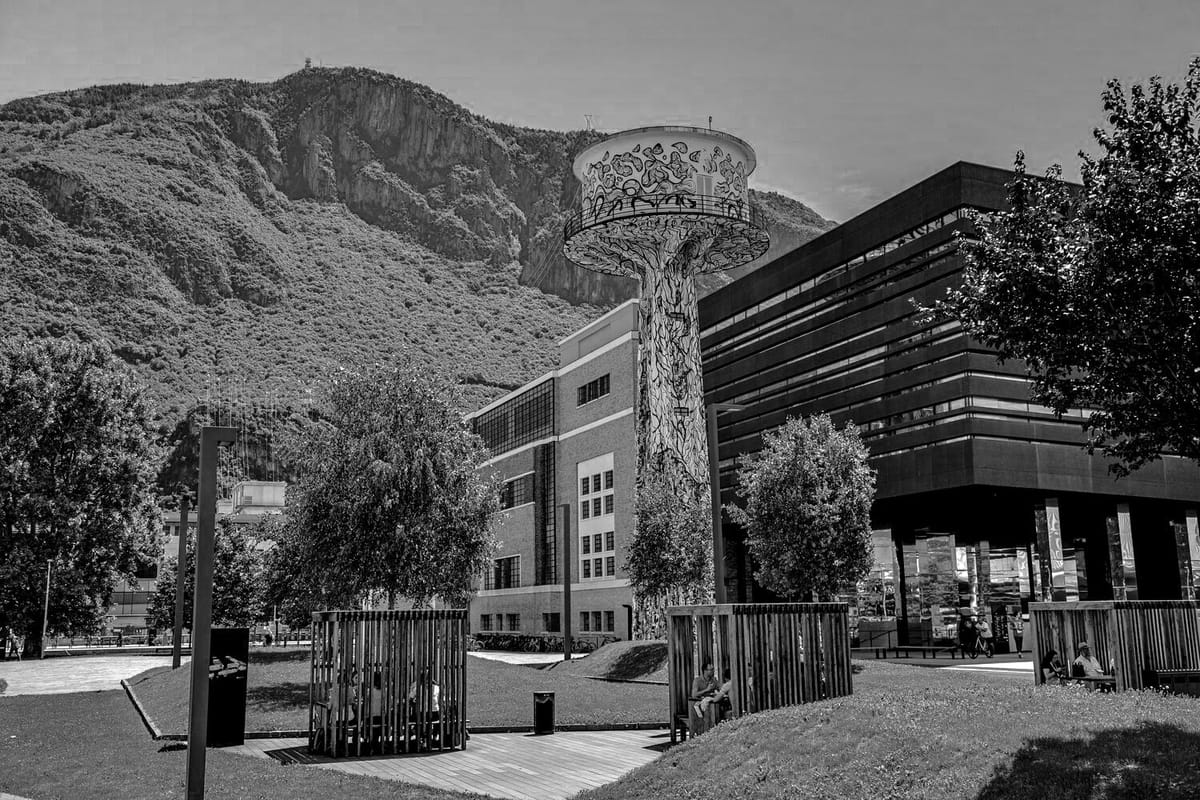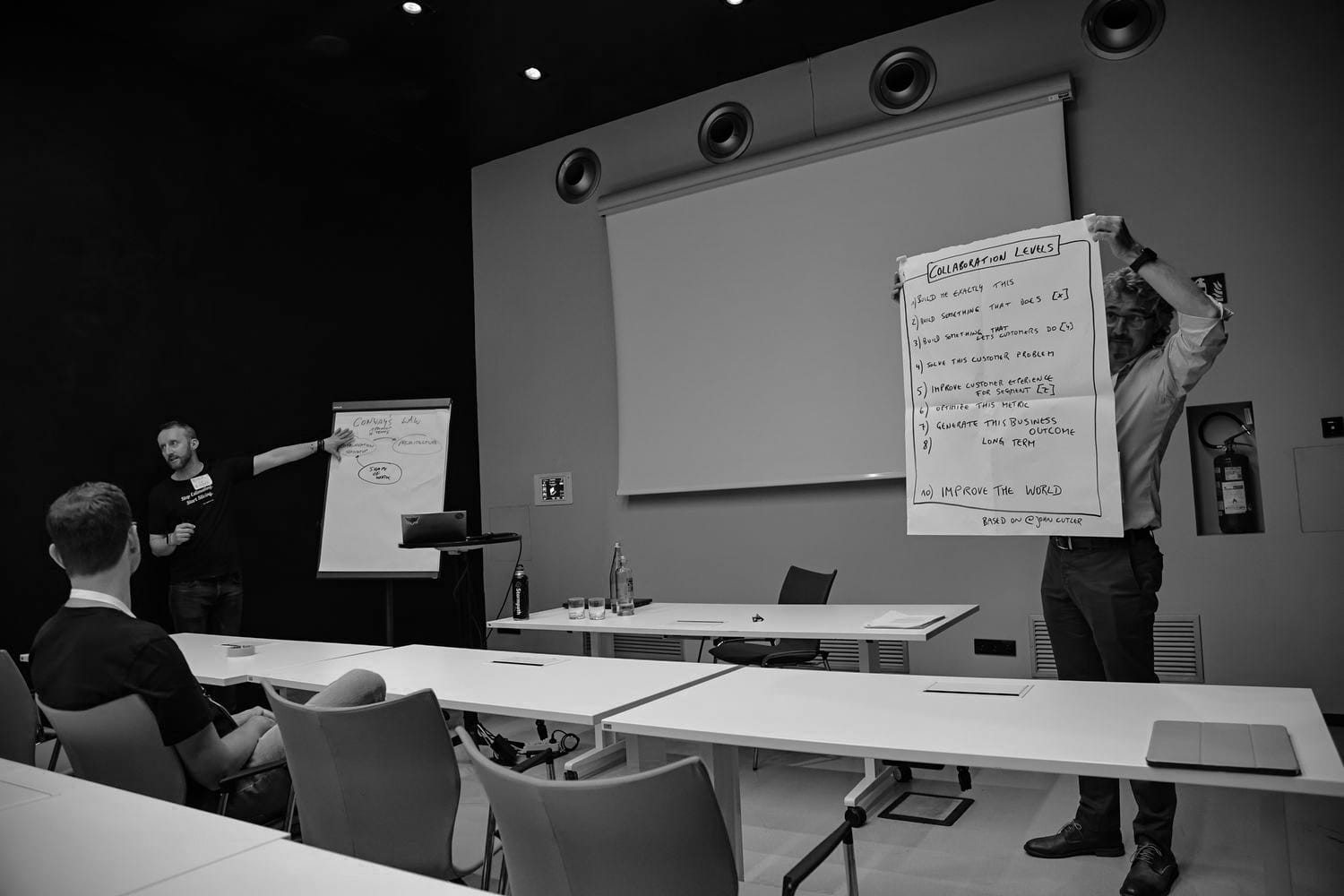XP Conference 2024

Conference Value
The first time I attended the XP Conference (way back in 2003!), I was struck by how open everyone was to communicating and sharing, no matter how famous or newbie they were.
In this latest edition, I’m no longer the newbie I was in 2003, but the atmosphere felt exactly the same. For me, this sense of community is the greatest value of this conference. It is a big opportunity to network, connect, and share ideas in a friendly atmosphere and have a lot of laughs, too. Another significant value is the opportunity to mix practitioners and academics, and having the presentations organized by topics and not by provenience helped a lot to mix the experiences.
Being Processor Innovation’s track Co-Chair was an honor. It allowed me to select many interesting presentations and meet the authors during the conference—a real pleasure!
Conference Program
The conference program was extensive, featuring one day of research workshops followed by three days of sessions in six tracks; all were preceded by Agile Venture Bolzano by IAM, which served as a great warm-up to the event.
I’m personally satisfied with our selection in the Process Innovation track, but I’m probably biased. 🙂 Special thanks to my co-chair, York Rössell, and my friend, Nicola Moretto, for their help in the selection process. All the speeches were well delivered, with sound content and respect for the assigned time. It was effortless for me to moderate the track.
I want to highlight two presentations that caught my attention.
The first one is from Ornela Vasiliauskaite. Her creative and innovative use of DDD with organizational design provided me with many amazing insights.
The second one is from Peter Gfader. That presentation was simplicity at its best. In less than 15 minutes, with only a few slides and two flipcharts (one of which I was honored to hold), he showed how to turn Conwey Law in your favor to enable architectural changes. It was eye-opening!

Agile is Dead
“Agile is Dead” was one of the recurring themes. We acknowledge that we messed up the marketing by selling Agile as a silver bullet; on the other end, the core principles (delighting customers, responding to change, leadership, etc.) are more crucial than ever in a challenging and evolving world, and the seminal impact of Agile is undeniable. I’m curious to see how the evolution will be and if a new paradigm will emerge from these experiences. Diana Larsen's keynote marvelously spotlighted this topic, and the “baby step approach” resonates with me. The salmon metaphor presented by Alberto Brandolini (Zio Brando) in his keynote was spot on with a touch of bitter humor.
We all agree that “Agile Transformation” is a misleading concept because it implies a shift from state A to state B, after which you are done and stable. This contradicts the principles of evolution and adaption, which are the core of Agile. We are also aware that it is easier to sell Transformation than Evolution, but the general feeling was that if we continue down this path, we are going to create more harm than good.
“Scaling Framework” was another concept in decline. Besides Safe (which was treated mostly like an F-word), the general idea was that every scaling is too prescriptive and context-independent to be effectively applied as described. We were talking more about scaling principles. I agree with this position. I hope we are rethinking the concept of scaling, not just changing the wording.
Overall, there was a lot of retrospective reasoning (what we have done, what we could do differently), and I found this attitude healthy. Agile is evolving, and this moment of criticism is a necessary step in the evolution.
AI and Agile
AI was another hot topic, with many presentations and conversations tackling the subject. I feel we still have to figure out how to use AI effectively and what impact it will have on our way of working. There is a lot more to it than just crafting the right prompt in ChatGpt, from how to maintain the generated code or the prompt scripts to how to express the complexity of a software system in a way that AI can really assist. The general feeling is that AI is here to stay, but the extent and the changes it will bring remain unclear.
Sustainability
Sustainability was another big theme at the conference. Unfortunately, I could not attend any presentations because they all conflicted with the one from the Process and Innovation track I was chairing. However, Zio Brando, in the final panel, pointed out a crucial dilemma:
In a profit-based world, a CEO will eventually face the question: “Do we build this feature/product that could increase profitability but is not sustainable, or do we not?” There is no easy answer. - Alberto Brandolini
Posing the question of Sustainability in our domain is vital. We cannot believe it is only related to goods or energy production; take a look at how energy-hog the AI is. However, referring only to energy narrows the field.
- How sustainable is our work environment?
- How sustainable are our processes?
- How emotionally sustainable is our way of working?
All of the above are legitimate questions we need to answer. Thankfully, we are in a good position to tackle them; “Sustainable pace” is one of the XP practices, so we have the right mentality to address this further. I’m new to the topic, and I want to study it further. If you are interested, I suggest checking out the Sustainability Manifesto.
Hybrid work
Another theme of the conference was remote/hybrid work. I’m glad to see that there are substantial research on the topic, with preliminary results confirming my experience in the field.
Zio Brando's keynote marvelously highlighted what we are missing in a remote environment and what practices no longer work or are less effective. While I don’t agree with his negative view - I think hybrid/remote is here to stay, and we need to get better at it - his insights are valuable and must be considered.
Technical Practices
There were many presentations on technical practices, and finally, it’s refreshing to see them being discussed again after a long period of being considered optional. Marco Consolaro was vocal about this.
“Agile without technical practices is like a Lambo without wheels.” - Marco Consolario
I must thank him for making the point. I think Scrum’s popularity (which doesn’t emphasize technical excellence) contributed to putting less emphasis on technical excellence, but I’m glad to see some signals that the tide is turning.
Management
I could not attend the Leadership presentations. However, all the conversations I had with the conference participants on the topic were insightful. The theme of complexity was recurring, and management needs to be better equipped to deal with it; it’s difficult because complexity brings uncertainty, which could be scary. My vision of management - where leadership is just a piece of the puzzle, and people management, organizational design, and systems thinking are key - seems sound and has received positive feedback. I’ll go deeper into this topic in future posts.
Thanks
I want to conclude with a note of gratitude.
Thank you to Xiaofeng Wang for inviting me to be a co-chair and for the huge effort she put into the organization. Thanks to all the volunteers, magisterially coordinated by Dron Khanna, who helped before and during the conference, making the event possible and enjoyable. Thank you to all the presenters for stimulating my curiosity and pointing me to new learning directions. Thank you to everyone I have had the chance to chat and laugh with. You have been an incredible source of inspiration.
And a special thanks to Diana Larsen; it was wonderful reconnecting after many years, and I appreciate all the advice you gave me!
Final statement
“The world is changing fast; we need to be learners!” Diana Larsen during the closing panel.